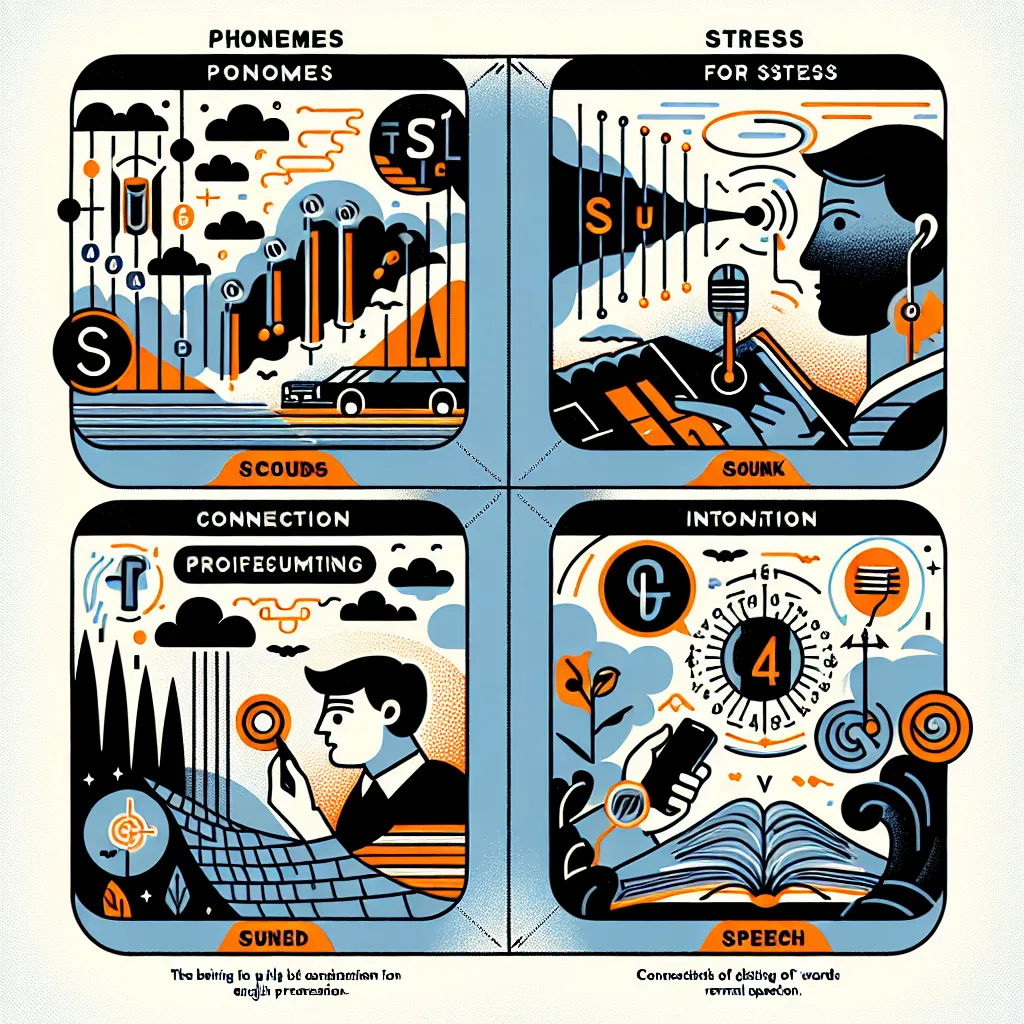Are you struggling with pronouncing challenging English words? You’re not alone. Many learners find English pronunciation daunting, especially when encountering complex vocabulary. In this comprehensive guide, we’ll explore effective Pronunciation Tips For Mastering Difficult English Words, helping you improve your speaking skills and boost your confidence.
Understanding the Importance of Proper Pronunciation
Proper pronunciation is crucial for effective communication in English. It not only helps you be understood clearly but also enhances your overall language proficiency. Mispronouncing words can lead to misunderstandings and affect your confidence when speaking. By mastering the pronunciation of difficult words, you’ll improve your listening skills, expand your vocabulary, and sound more natural in conversations.
 Importance of English Pronunciation
Importance of English Pronunciation
Common Challenges in English Pronunciation
Unfamiliar Sounds
English contains sounds that may not exist in your native language, making them challenging to reproduce. For example, the “th” sound in words like “think” or “this” is often difficult for non-native speakers.
Silent Letters
English is notorious for its silent letters, which can confuse learners. Words like “knife,” “psychology,” and “island” contain letters that aren’t pronounced, making them tricky to master.
Stress and Intonation
English is a stress-timed language, meaning that the rhythm and stress patterns play a crucial role in pronunciation. Incorrect stress can change the meaning of words or make them difficult to understand.
Effective Strategies for Improving Pronunciation
1. Listen and Repeat
One of the most effective ways to improve your pronunciation is through active listening and repetition. Use resources like podcasts, audiobooks, or YouTube videos to expose yourself to native speakers. Pay close attention to how words are pronounced and try to mimic the sounds.
2. Break Words into Syllables
When faced with a difficult word, break it down into smaller parts. For example, “consciousness” can be divided into con-scious-ness. Practice pronouncing each syllable separately before putting them together.
3. Utilize Phonetic Transcriptions
Learn to read and understand phonetic transcriptions using the International Phonetic Alphabet (IPA). This will help you identify the correct sounds for each word. Many online dictionaries provide phonetic transcriptions alongside definitions.
4. Practice Minimal Pairs
Minimal pairs are words that differ by only one sound, such as “ship” and “sheep” or “bad” and “bed.” Practicing these pairs can help you distinguish between similar sounds and improve your overall pronunciation.
5. Record Yourself
Use your smartphone or computer to record yourself speaking. Listen back to identify areas for improvement and compare your pronunciation to native speakers. This self-assessment technique can be incredibly valuable for tracking your progress.
Advanced Techniques for Mastering Difficult Words
1. Focus on Stress Patterns
Pay attention to which syllables are stressed in multi-syllable words. For example, in “photography,” the stress is on the second syllable: pho-TO-gra-phy. Practice emphasizing the correct syllables to improve your pronunciation and rhythm.
2. Use Pronunciation Apps
Take advantage of technology by using pronunciation apps like ELSA Speak or Google Translate. These tools can provide instant feedback on your pronunciation and offer targeted exercises for improvement.
3. Join Speaking Clubs or Language Exchange Programs
Practicing with others, especially native speakers, can greatly enhance your pronunciation skills. Join online language exchange platforms or local speaking clubs to get more practice and receive feedback from peers.
For more information on practicing pronunciation with speaking clubs, check out our article on how to practice pronunciation with speaking clubs.
4. Learn Connected Speech Patterns
In natural English speech, words often blend together. Study and practice connected speech patterns, such as linking, elision, and assimilation, to sound more fluent and natural when speaking.
5. Master English Intonation
Intonation plays a crucial role in conveying meaning and emotion in English. Practice rising and falling intonation patterns to improve your overall pronunciation and expressiveness.
To delve deeper into mastering English intonation, read our guide on how to master pronunciation of English intonation.
Common Pronunciation Mistakes to Avoid
- Mispronouncing silent letters (e.g., “k” in “knife”)
- Incorrect word stress (e.g., emphasizing the wrong syllable)
- Substituting sounds from your native language
- Ignoring word endings, especially -ed and -s
- Failing to differentiate between long and short vowel sounds
Phonemic Chart and Commonly Mispronounced Words
Understanding the phonemic chart can greatly aid in improving your pronunciation. Here’s a brief overview of the English phonemic chart:
- Vowel sounds: /i:/, /ɪ/, /e/, /æ/, /ʌ/, /ɑ:/, /ɒ/, /ɔ:/, /ʊ/, /u:/, /ɜ:/, /ə/
- Consonant sounds: /p/, /b/, /t/, /d/, /k/, /g/, /f/, /v/, /θ/, /ð/, /s/, /z/, /ʃ/, /ʒ/, /h/, /tʃ/, /dʒ/, /m/, /n/, /ŋ/, /l/, /r/, /j/, /w/
Here are ten commonly mispronounced English words, along with their correct pronunciations:
- Pronunciation: /prəˌnʌnsiˈeɪʃən/
- Thorough: /ˈθʌrə/
- Epitome: /ɪˈpɪtəmi/
- Niche: /niːʃ/ or /nɪtʃ/
- Paradigm: /ˈpærədaɪm/
- Quinoa: /ˈkiːnwɑː/
- Hyperbole: /haɪˈpɜːbəli/
- Facade: /fəˈsɑːd/
- Archetype: /ˈɑːkɪtaɪp/
- Mischievous: /ˈmɪstʃɪvəs/
 English Phonemic Chart
English Phonemic Chart
For more tips on pronouncing difficult consonant sounds, visit our article on how to pronounce difficult consonant sounds in English.
Conclusion
Mastering the pronunciation of difficult English words takes time, practice, and patience. By implementing the strategies and techniques outlined in this guide, you’ll be well on your way to improving your pronunciation skills and speaking English with greater confidence and clarity.
Remember to be consistent in your practice, seek feedback from native speakers or language teachers, and don’t be afraid to make mistakes – they’re an essential part of the learning process. With dedication and the right approach, you’ll soon find yourself pronouncing even the most challenging English words with ease.
For additional resources and exercises to improve your pronunciation, check out our article on how to improve pronunciation using guided practice.
We encourage you to share your experiences and any additional tips you’ve found helpful in the comments below. Happy learning, and keep practicing!




